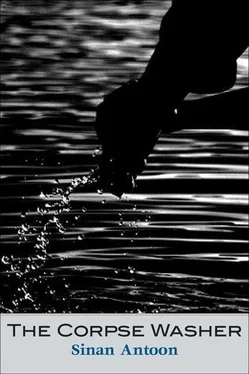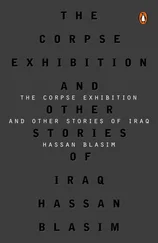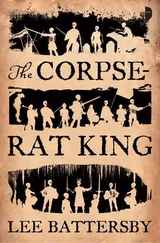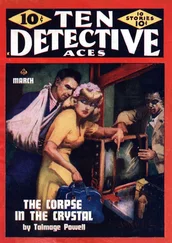I knelt and started kissing her knees and then made my way up her left thigh with my lips all the way to her hip, her tummy, and her navel again to tickle her. She giggled and put her fingers through my hair. I climbed on top of her and took her left nipple between my lips. My tongue circled around it a few times before moving to the right. She was sighing and moving under me like a wave. My tongue climbed to her neck and mouth. She kissed me, open-mouthed. I bit her lower lip and my tongue wandered inside her mouth. I went down again to her breasts and nipples and then her navel and kissed her right below it. She had parted her thighs a bit. I surrounded them with my arms and gently kissed her soft inner thighs. Her sighs intensified. I kissed in between. She tasted like the sea. I kept plowing with my tongue and she kept rising in waves until her body overflowed.
Everything quieted down afterward for a minute and my head rested on her thigh. She pulled me up by the hand and I was on top again. She hugged and kissed me and then clasped her legs around me. I entered her looking deep into her large eyes. I kept reentering her body in a rising tempo until I felt I was about to flood. A sweet silence reigned afterward.
I loved her self-confidence and the way she stood there and put her hand on her hip saying: “So, you want to sculpt me now?”
I’m sitting alone, watching TV and flipping the channels, but they are all blank. No sound or image. Whiteness, silent whiteness, covers everything. I punch the TV with my fist a few times to no avail. I keep flipping through the channels in search of something that might relieve my insomnia and entertain me a bit. I find only one channel working.
There, five hooded men stand around a sixth, who kneels and wears an orange work suit. A black bag shrouds his head. Four men hold their weapons while their leader reads the execution verdict to the kneeling prisoner. The leader pauses and looks at me, warning: You better change the channel, because what you will soon see will terrify you and you’re not a man . He goes back to reading from the piece of paper. When he finishes, he folds the paper and puts it in his pocket. One of the hooded men standing behind him hands him a sword. The leader lifts the black bag from the head of the kneeling man, who starts to weep like a child. The leader holds the man’s blond hair and tilts his head to the left. He lifts the sword and beheads him with a single blow while intoning: God is great. God is great .
I feel nauseated and turn off the TV, but blood flows from the screen, covering everything around me in red.
I was startled as I uncovered the face of one of the men I washed yesterday. He looked exactly like a dear friend of mine who’d died years ago. The same rectangular features, high cheek bones, and long nose. The skin and eyes were coffee brown. His eyes were shut, of course. Their sockets were somewhat hollow. The thick eyebrows looked as if they were about to shake hands. But, I said to myself, I’ve already seen him dead in my own arms once before. The name on the paper was Muhsin. The distinguishing mark that this person, who looked so much like my friend, had acquired was a bullet hole in the middle of his forehead. It looked like a period which had put an end to the sentence of his life. One of the men who brought him said that he was a shop owner and was killed in a robbery. Thank God, I thought. It’s not a sectarian killing. But does it matter to the dead how and why they die? Theft, greed, hatred, or sectarianism? We, who are waiting in line for our turn, keep mulling over death, but the dead person just dies and is indifferent.
I asked them if they were from al-Samawa. Perhaps he was one of Basim’s relatives. One of them asked if something was wrong. “No, nothing. It’s just that the deceased looks exactly like a dear friend of mine from al-Samawa and I thought they might be related.” He answered with the usual cliché: “God creates forty identical faces.”
Basim and I had become close friends during my military service. Without contacts and favors that could get you a posting close to your family, a soldier’s fate was like a throw of the dice. After two months of grueling training, the hand of coincidence, or absurdity, landed me in southern Iraq. I was ordered to report to a small unit in al-Samawa, away from Baghdad and everything I’d ever known. The unit was an antiaircraft missile unit temporarily stationed at the al-Samawa cement plant. It was 270 kilometers south of Baghdad, halfway to Basra. The trip took three hours by car.
I was far away from everything, but contrary to my expectations, the distance wasn’t a bad thing at all. I missed Reem, of course, and there was no way to contact her. Army life was not easy, but our commanding officer was a kind and easygoing man, and we didn’t have many duties. The cement factory had been looted after the 1991 war. After my first leave, I returned to the unit from Baghdad with lots of books to kill the time. I also brought sketchbooks and a tiny radio to listen to music and the news at night. There was a TV in our unit, and we could watch the Baghdad channels and sometimes Kuwaiti TV, but the transmission was weak and I preferred the radio. I didn’t miss Baghdad that much. I loved the serenity of the local landscape. I spent most of my time reading, drawing, and contemplating. That’s why Basim called me “the intellectual” and always addressed me as “Professor Jawad.”
I rediscovered the beauty of stars at night. I never realized that so many of them could crowd the sky. I used to love gazing at them as a child when we slept on the roof during the summer. This is what happens to city people when we are far from our false glitter. I found myself shepherding the stars every night.
It was there that I met Basim. I didn’t know it at first, but he would become the star that lit the place for me. He was from al-Samawa and would ask the C.O., Lieutenant Ahmad, for permission to go downtown Thursday evening and return on Friday night. The C.O. would approve, especially since Basim used to get us things we needed, cigarettes, tea, and sugar. The army’s supply system was irregular and less efficient than it had been in the 1980s. Basim’s father, Hajj Muhammad al-Sudani, was rich and owned a few shops at the al-Samawa suq. Basim had studied history at al-Basra University. He had a great sense of humor and was full of curiosity and joie de vivre. You heard his laughter everywhere he went.
He used to tease me for being a city boy who knew nothing about the desert, for knowing only about the capital. More than once during those first few weeks he invited me to be a guest at his family’s home, but I used to thank him and decline. After he repeated the invitation a few times, I realized that he was sincere, so I finally agreed. He promised me a tour of the town and a visit to the remains of the ancient city of al-Warkaa close by. Basim was fascinated by the local history and landscape and took pride in them. He told me about Lake Sawa. I’d seen the name in geography books, but I knew little about it. He took me there in his car during the first month of my service.
At first, on our way there, I did not see the blue and thought we were lost. How could a lake exist amid all this desert? I couldn’t see anything on the horizon, but he said that it was difficult to see from a distance, because the lake was five meters above its surroundings and it had a naturally formed wall of gypsum. There was no river feeding it. Its only source was water from deep below the ground. Basim said that it was the same spring from which the water had burst forth when the flood covered the earth in Noah’s time. Then the water receded and what was left became Sawa.
Читать дальше












